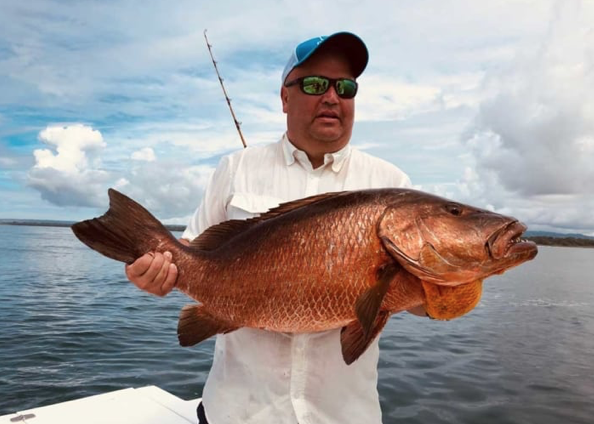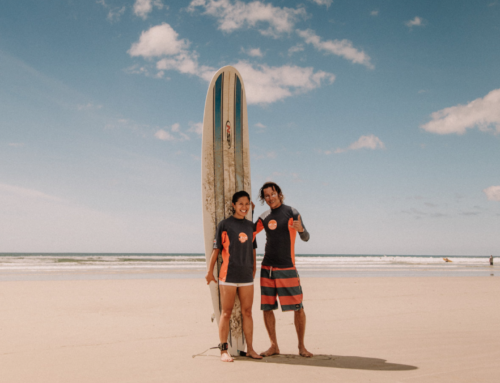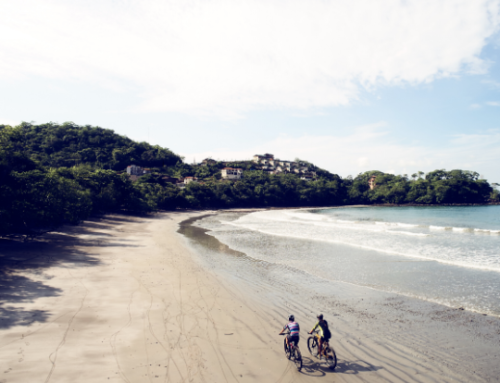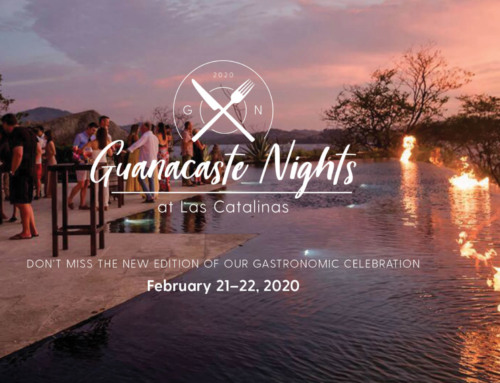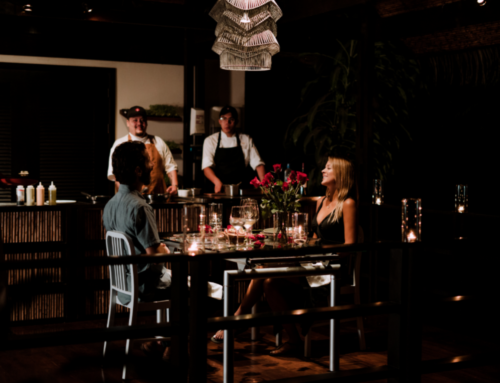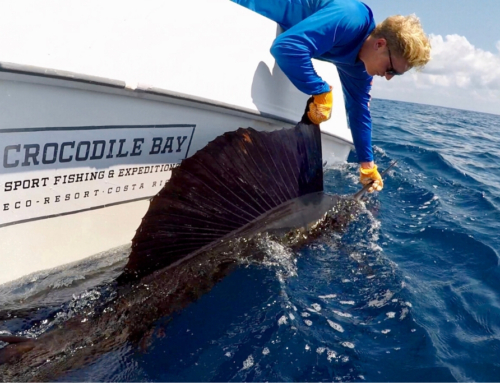Crocodile Bay – December/January 2019 Fishing Report
—————
The month of December, and especially our Christmas week, is family time here at Crocodile Bay Resort in Costa Rica and our staff, along with the fishing crews, always look forward to this time of the year. Many repeat guests have become more like friends than clients over the years as they bring their families to enjoy the holidays at our activity-based resort in the warmer climate. The staff’s dedication to customer service earned Crocodile Bay the distinction of the second-best destination in the world to take a family fishing vacation by Sport Fishing Magazine.

Mike Pizzi with a beautiful snapper.

Pizzi family son with sailfish.
One such family is the Pizzi’s from New York City. Crocodile Bay has been an escape for Mike Pizzi every year for the last 18 years from the fast-paced city lifestyle. A dozen or so years ago, Mike married and added his wife Ann to the visit. And nearly a decade ago, they included Eloise who is now nine and Finn who is now eight. Both joined the fishing as soon as they were big enough to hold a fishing rod.
This year the sails have not shown up in big numbers yet, but the marlin have hung around longer. We had several days at the end of the year when every offshore boat got a shot at a marlin. Both Eloise and Finn got a sailfish each, not their first, but each year they need a little less help from dad. The Pizzi’s also had a good day fishing inshore with a variety of snappers, trevally, and roosterfish. Mike caught and released a 30 plus pound Cubera snapper and kept a smaller one for dinner.
Additional December action includes a school of big tuna working 7 miles off the beach. The Coppage family tangled with a couple of well over 200 lbs monsters that escaped at the leader. The biggest tuna that was landed in that school hit the scales at 295 pounds.
THE BOTANIKA FOUNDERS CLUB TOURNAMENT
 The Botanika Founders Club three-day tournament got off to a slow start with only one fish earning points the first day, which allowed Bill Hewitt and David Chelette to take the lead.
The Botanika Founders Club three-day tournament got off to a slow start with only one fish earning points the first day, which allowed Bill Hewitt and David Chelette to take the lead.
At the end of day two, Paul DeKort’s team jumped into first place with catching five roosterfish, one snapper, one jack, and one dorado over 25 lbs. The Lunsford team was right behind them in second place that day, with catching one dorado, three snappers, three roosterfish, and one needlefish. On day two, team Hewitt /Chelette caught one roosterfish, three snappers, two jacks, four mackerels and two pompanos. All the teams were so close that any of them could have won the tournament. Team Hewitt and Chelette came back strong on day three with catching four sailfish. The DeKort team caught two sailfish and one dorado. The Lundsford team caught one sailfish and one dorado. Hewitt and Chelette won and finished with 1410 points to take the top prize in the first Botanika Founders Tournament, with DeKort’s team finishing second and the Lunsford team third.
LOOKING AHEAD
 Scientists will tell you the reason this area became such a mega sailfish spot is because of the wind crossing Nicaragua and Northern Costa Rica. These strong winds push the surface water offshore, and the upwelling does not have enough oxygen to support the sailfish. Therefore, the whole population moves out of that area and into the more oxygen-rich water in our area off the Osa Peninsula. These winds will blow for about four months starting in December.
Scientists will tell you the reason this area became such a mega sailfish spot is because of the wind crossing Nicaragua and Northern Costa Rica. These strong winds push the surface water offshore, and the upwelling does not have enough oxygen to support the sailfish. Therefore, the whole population moves out of that area and into the more oxygen-rich water in our area off the Osa Peninsula. These winds will blow for about four months starting in December.
For me, it is the trees in the rainforest on the edge of the Golfo Dulce that signal the coming of the sailfish. Every year when the trees bloom into a bright colorful yellow, the sailfish arrive in significant numbers. For the last 20 years, this has always occurred in December. As this New Year rolled in, there is still no color change. This is sure to start any day now, and the fishing for sails will turn into double-digits.

Ann Pizzi with a roosterfish.
Tuna fishing will continue to be healthy. With no purse sein boats (a large wall of netting deployed around an entire area or school of fish) chasing them close to shore, the tuna have really made a comeback. Dorado will be hit and miss. When the currents push bait and floating structure in the area, those numbers will increase.
With inshore fishing, the water is getting cleaner as less rain is falling. Roosters, snapper, jacks and deep drop species like grouper should readily take a bait. There is always one or two fifty-pound roosterfish taken each week, so although most fish will average 15 to 20 pounds, there is still a shot at a big one.
Happy New Year…. Keep a wet line!
Todd Staley

